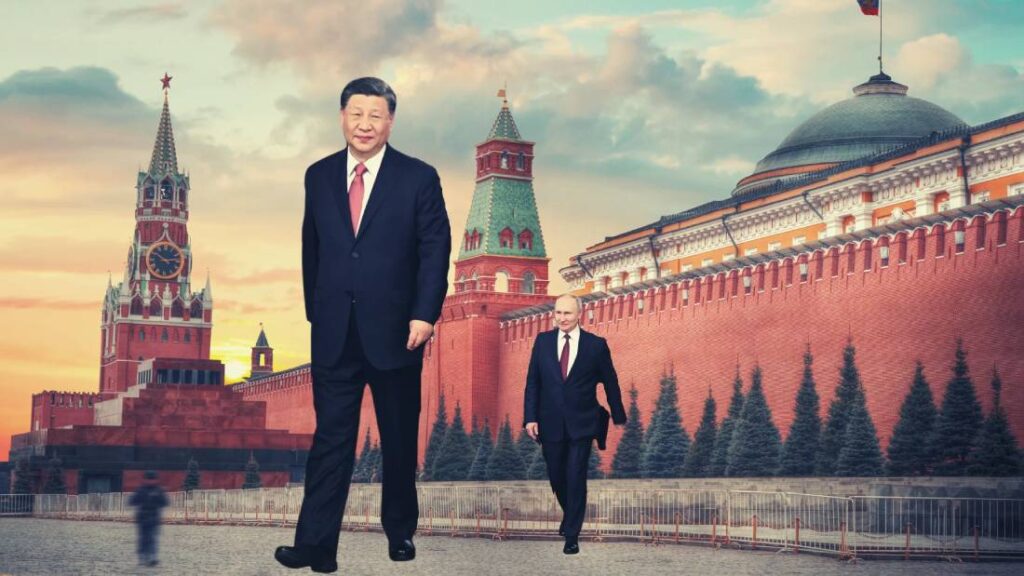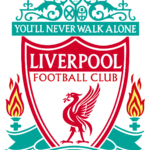China’s leader Xi Jinping and Russia’s president Vladimir Putin refer to each other as ‘Dear friends’. In 2022, three weeks after Russia and China declared that they were ‘not allies, but friends’ with ‘no limits’, Russia invaded Ukraine.
China and Russia’s closeness stems from their common aims. Both countries are autocracies and oppose the political and economic order led by the United States. Both have territorial claims, Russia in Ukraine and China in Taiwan. They also have shared economic interests. China needs energy resources and Russia has them. China’s support has enabled Russia to withstand the American and European economic sanctions, imposed on Russia after it invaded Ukraine. With Western countries no longer buying Russian oil or selling hi-tech products to Russia, China has stepped in to become Russia’s most important trading partner. In 2022, China’s trade with Russia was a record $190bn, a 30% increase compared to 2021. At the start of 2023, Russia replaced Saudi Arabia as China’s main supplier of oil.
Russia also has military scientific and technical expertise that China wants. The two countries cooperate strategically on information technology, for example, Huawei, China’s telecoms giant, has research and development centres in Russia. In 2022, a joint university cooperation agreement, gave China access to Russia’s technological research and development programmes, including military research on missiles, tanks and surveillance technologies.
With friends like these…
The two countries may be friends, but they are not equals. China’s narrative is one of its rise and the West’s decline. The story begins with China’s 100 years of ‘humiliation’ by European powers (including Russia) and Japan from 1839 to 1949. The humiliation ended when the Chinese Communist Party took control in 1949. Since then, guided by the party, China’s destiny is to return to global supremacy.
Consequently, beyond Russia, China’s ambition is not just to oppose the US as the world’s foremost power, but to replace it. China and the US have moved from economic competition to ideological contest. China is promoting autocracy as superior to democracy. It also wants to revise the meaning of human rights from being about individuals to an idea that serves the collective good of the state. China also wants to change the rules of commerce, currently based on the US dollar, to a system based on the Chinese yuan. This matters as China is the major trading partner of more than 120 countries, including the US and Japan and is far more vulnerable to economic sanctions than Russia.

While Russian influence is weakening, China is extending its diplomatic reach. In April 2022, China helped broker a deal between Iran and Saudi Arabia. Normalising diplomatic relations between two of the Middle East’s bitterest rivals helps further a new anti-Western global order that excludes the United States and Europe. China has also announced its willingness to support peace talks between Israel and the Palestinians, as well as proposing a 12-point peace plan to end the conflict in Ukraine.
Russia has complained about Western encroachment into former Soviet Union countries – the Baltic States, Ukraine, Moldova and Georgia. However, Russia says little about how the balance in Central Asia is being changed by China’s Belt and Road Initiative, which cuts through former Soviet heartlands – Kazakhstan, Kyrgyzstan, Tajikistan, Turkmenistan and Uzbekistan. Russia’s invasions of Georgia in 2008 and Ukraine in 2022 prompted concern in Central Asian countries about possible Russian intervention in their affairs. Further, the Eurasian Economic Union, a restrictive customs union protecting Russia, contrasts with China’s commitment to invest some $124 billion to improve infrastructure and economic integration across Central Asia. China has now overtaken Russia as Central Asia’s major trading partner.
Forever friends?
Unlike the US or Europe, China presents no political or ideological threat to Russia, but the narrative of Chinese ascendancy above all other powers includes supremacy over Russia. China and Russia have a long and often uneasy history. Between 1858 and 1860, China was forced to accept Russia’s annexation of southeast Siberia and the city of Yongmingcheng became Vladivostock. Russia and China’s 4,300km border was finally settled in 2008, after 17 years of negotiation. In 1960, the relationship between Russia and China, the world’s two great communist powers, broke down over an ideological clash between Soviet leader Khrushchev and China’s Chairman Mao Zedong. This Sino-Soviet split was also underpinned by Russia’s refusal to share nuclear missile technology with China. After Soviet leader Stalin died in 1953, China was no longer prepared to be the junior partner in the communist alliance and both countries pursued increasingly independent policies.
It remains to be seen how Russia accepts its secondary role to China. Its nominal GDP may be less than 10% of that of China or the US, but Russia has nuclear weapons and regards itself as a great power. Up until 2012, Russia was positive about European integration. In return it wanted Europe and the US to treat Russia as an equal and recognise its authority over former Soviet countries – its ‘near-backyard’. When Europe and the US did not acknowledge Russia’s invasion of Georgia in 2008 and its annexation of Crimea in 2014 as the legitimate actions of a great and equal power, Russia turned to China.
The countries may be friends, but Russia is very much the junior partner in the relationship and is becoming increasingly reliant on China. Friendships can last a lifetime, but Russia may do well to remember the words of former UK prime minster Lord Palmerston that, in international relations, great powers have no permanent friends, only permanent interests.


